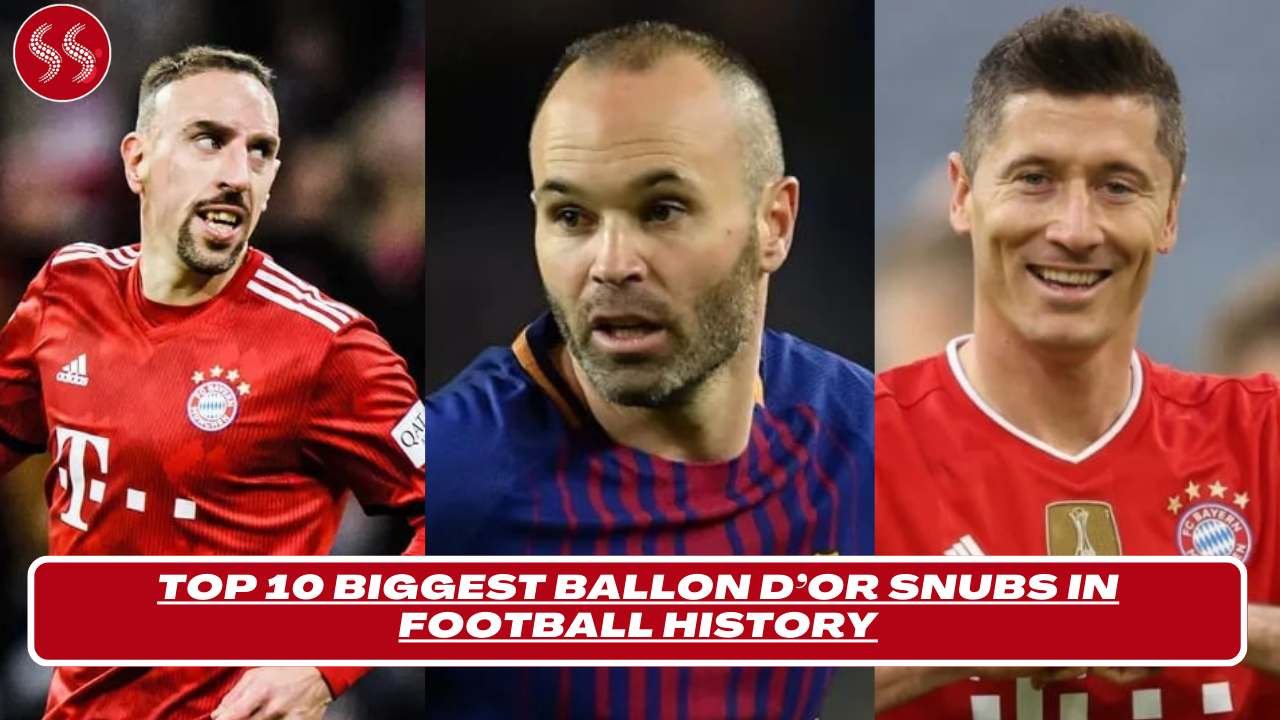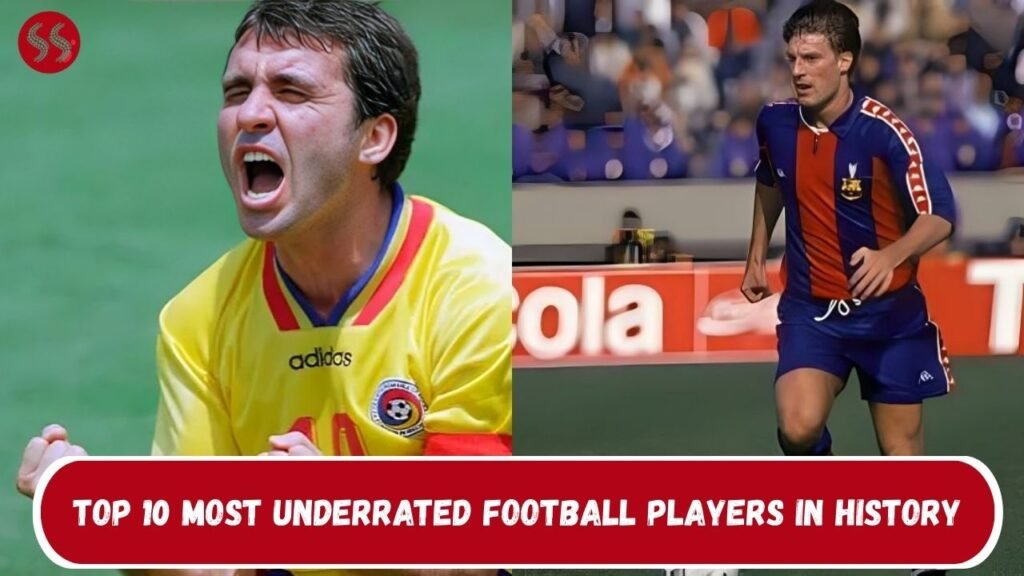Top 10 Biggest Ballon d’Or Snubs in Football History is a journey through the most shocking injustices in world football’s most prestigious award. For decades, the Ballon d’Or has been the ultimate symbol of individual greatness, but not every decision has been universally accepted. Many iconic players have delivered unforgettable seasons, lifting trophies, breaking records, and dazzling fans, only to watch the golden prize slip away to someone else. These controversial outcomes have sparked endless debates among fans, pundits, and legends of the game, leaving a lasting sense of “what could have been.”
In this article, we revisit the players who truly deserved football’s highest honor but were denied by narrow margins, politics, or controversial choices. From world-class midfielders overlooked for their creative brilliance to strikers who carried their teams yet were ignored, the list shines a light on football’s most debated award moments. Top 10 Biggest Ballon d’Or Snubs in Football History celebrates these forgotten heroes, reminding us that greatness is not always defined by trophies alone. For fans who love football’s drama, passion, and history, this breakdown is a must-read.
10. Raul (2001) – should have beaten Michael Owen
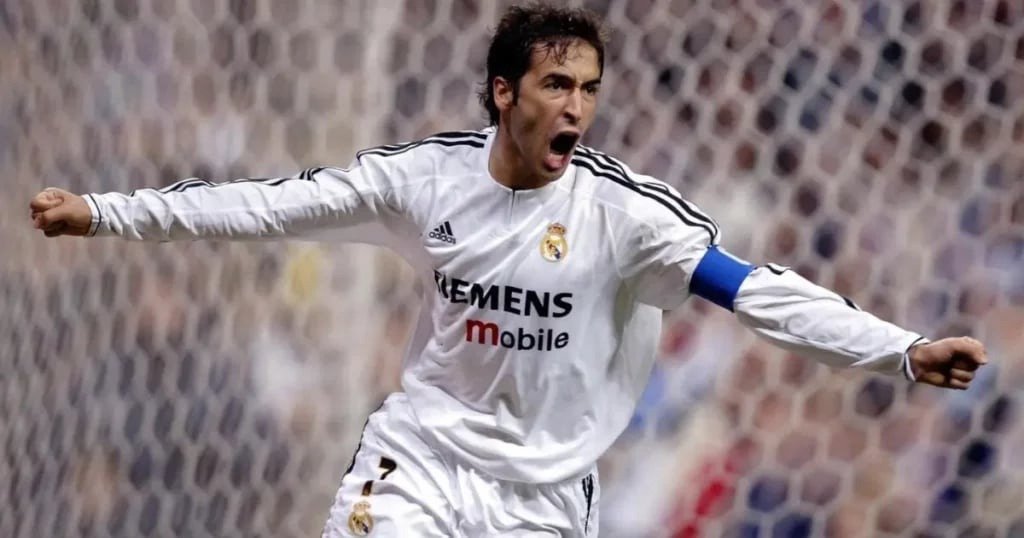
In 2001, Raul Gonzalez delivered one of the finest seasons of his career, cementing himself as Real Madrid’s talisman and one of Europe’s deadliest forwards. He topped the scoring charts in both La Liga and the Champions League, guiding Los Blancos to the league title. His performances weren’t just about goals; Raul was also the emotional leader, orchestrating Madrid’s attack with consistency and intelligence. Every big occasion seemed to elevate him, as he continually rose to the challenge.
Despite Raul’s heroics across Europe, the Ballon d’Or was awarded to Michael Owen. The Englishman enjoyed a memorable year with Liverpool, winning the FA Cup, League Cup, and UEFA Cup. While his contributions were noteworthy, his influence and impact across Europe were nowhere near the level Raul had displayed in Spain and the Champions League.
The decision left many baffled, with pundits and fans worldwide believing Raul was unfairly overlooked. Even years later, this remains one of the most controversial outcomes in Ballon d’Or history. Raul’s dominance during that season arguably outshone any of his contemporaries, and his omission from the top spot is remembered as a glaring example of how politics and narratives can overshadow sheer footballing brilliance.
9. Thierry Henry (2003) – should have beaten Pavel Nedvěd

Thierry Henry’s 2002/03 season was the epitome of attacking excellence. The Arsenal striker was unstoppable, combining breathtaking pace, ruthless finishing, and extraordinary creativity. That year, Henry scored 32 goals in all competitions while providing a staggering 23 assists, making him one of the most complete forwards football had ever seen. His ability to dominate games, often single-handedly, put Arsenal within touching distance of European glory while also delivering an FA Cup triumph.
Despite this remarkable campaign, the Ballon d’Or was awarded to Juventus midfielder Pavel Nedvěd. While Nedvěd had an influential year for Juventus, helping them reach the Champions League final, his individual numbers and overall impact did not come close to Henry’s all-round brilliance. To many, the choice seemed baffling, as Henry had outperformed everyone across Europe both statistically and stylistically.
This decision remains one of the most cited examples of Ballon d’Or injustice. Fans often argue that Henry was denied the recognition he deserved at the peak of his powers. His blend of goals, assists, and sheer dominance made him a complete forward and one of the most feared players in the world. Missing out in 2003 is still remembered as a defining snub in football history.
8. Franck Ribéry (2013) – should have beaten Cristiano Ronaldo
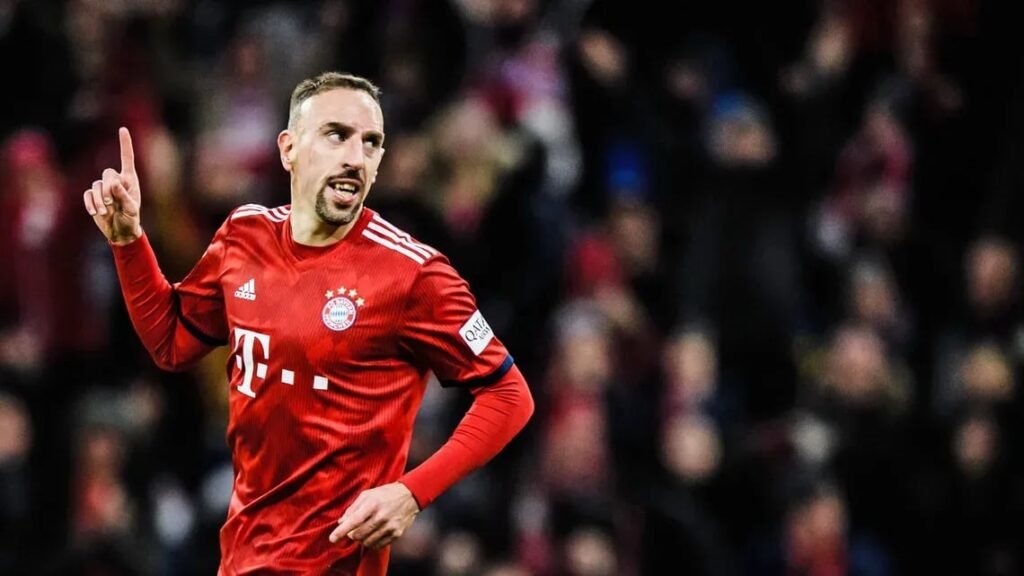
Franck Ribéry was the shining light of Bayern Munich’s historic treble-winning campaign in 2013. From the left wing, he dazzled with creativity, flair, and decisive contributions in every competition. Ribéry played a pivotal role in the Bundesliga, DFB-Pokal, and Champions League victories, making him a central figure in one of the most dominant club seasons in modern football. His artistry and leadership even earned him the UEFA Best Player in Europe award, underlining just how influential he had been throughout the year.
However, the Ballon d’Or went to Cristiano Ronaldo, who posted a phenomenal goal-scoring tally but failed to win any major trophies that season. While Ronaldo’s brilliance was undeniable, the lack of silverware made Ribéry’s omission all the more controversial. For many, this was a case where goals and celebrity status overshadowed overall influence and achievement.
Ribéry himself admitted feeling robbed, and the footballing world largely agreed. The 2013 snub is widely remembered as one of the biggest modern Ballon d’Or injustices, where a player who drove his team to unparalleled success was ignored in favor of individual statistics. Ribéry’s absence from the winners’ list still feels like a void in football’s history of recognition.
7. Arjen Robben (2014) – should have beaten Cristiano Ronaldo
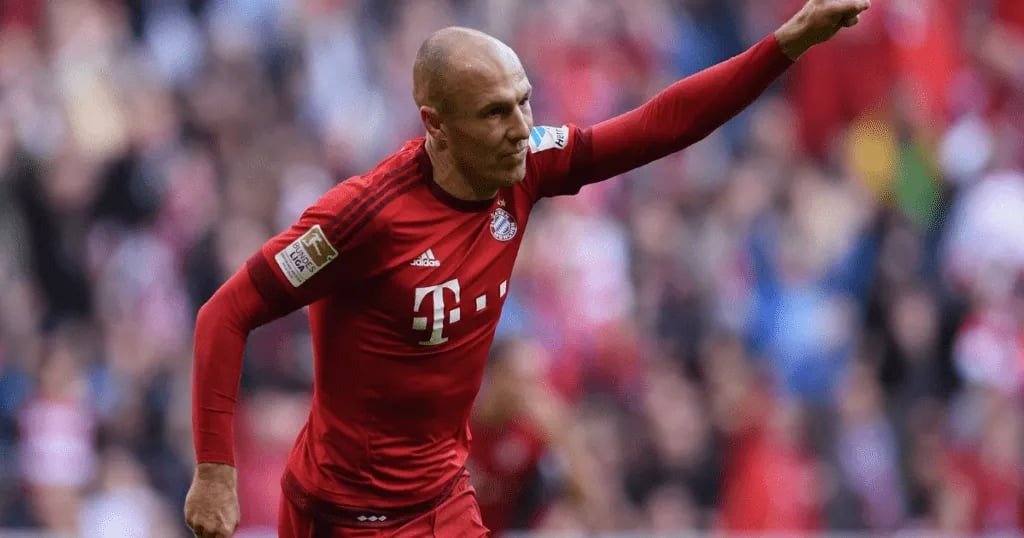
Arjen Robben’s 2014 season stands as one of his career-defining peaks. For Bayern Munich, he was the most dangerous attacker, driving their offense with speed, trickery, and clinical finishing. His performances in the Bundesliga and Champions League were world-class, making defenders tremble every time he cut inside on his left foot. Robben’s influence stretched beyond club football, as he became the star of the Netherlands national team during the 2014 World Cup.
At the tournament in Brazil, Robben was electric, dragging his country to the semifinals with match-winning displays. He tormented defending champions Spain, shone against Chile, and scored decisive goals against Mexico. His impact was so strong that many considered him one of the top three players in the world that year.
Yet, when the Ballon d’Or came around, Cristiano Ronaldo once again won, largely due to his staggering statistics. While Ronaldo was extraordinary, his season lacked the same balance of club dominance and international brilliance that Robben displayed. Fans and experts argued that the Dutch winger’s all-round contributions were overlooked. For many, 2014 was the year Robben truly deserved recognition, making his Ballon d’Or snub one of the harshest in modern football.
6. Erling Haaland (2023) – should have beaten Lionel Messi
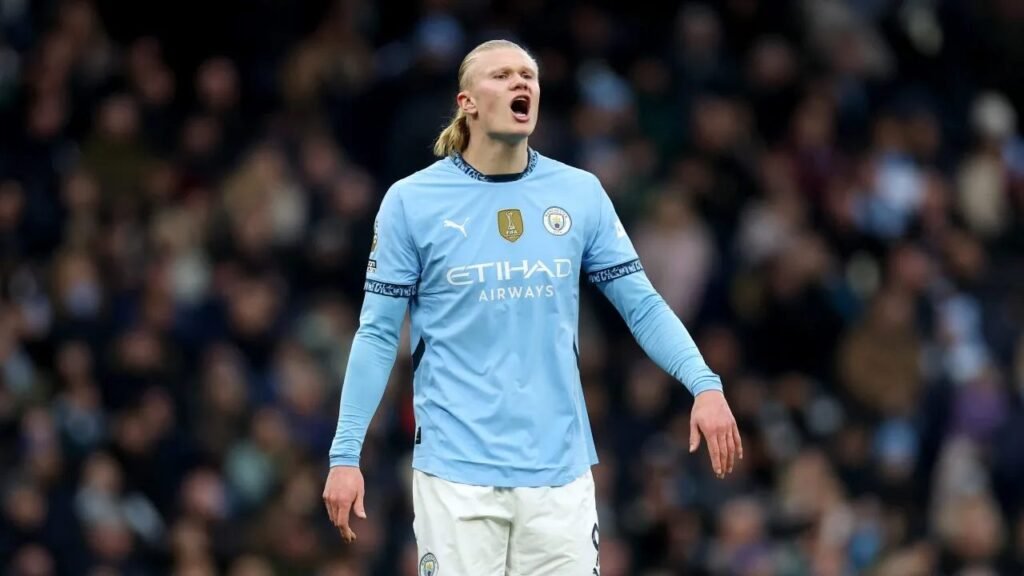
Erling Haaland’s first season at Manchester City was nothing short of historic. The Norwegian striker redefined goal-scoring standards, netting 52 goals across competitions while powering City to a historic treble of the Premier League, FA Cup, and Champions League. His ability to score from anywhere, combined with physical dominance and cold-blooded finishing, established him as the most feared striker in world football.
Week after week, Haaland broke records. He smashed the Premier League single-season scoring tally and became the focal point of Pep Guardiola’s all-conquering side. His numbers weren’t just impressive; they were game-changing, setting benchmarks for what strikers of the future would aspire to achieve.
Yet, despite this, the 2023 Ballon d’Or went to Lionel Messi, largely due to his role in Argentina’s 2022 World Cup triumph. While Messi’s brilliance on the world stage is undeniable, many argued that the award should reflect the full year’s performance, where Haaland’s consistency was unmatched. For some, the decision epitomized football’s tendency to prioritize narratives over merit.
This snub remains a heated talking point today, with countless fans believing Haaland was unfairly robbed of his first Ballon d’Or — a recognition that seemed inevitable after such a record-breaking season.
Also Read:
- Top 10 Box to Box Midfielders of 2025
- Top 10 Elite Defenders in La Liga 2025
- Top 10 Uruguayan Football Stars of 2025
- Top 10 Swedish Football Stars of 2025
5. Andrés Iniesta (2010 and 2012) – should have beaten Lionel Messi
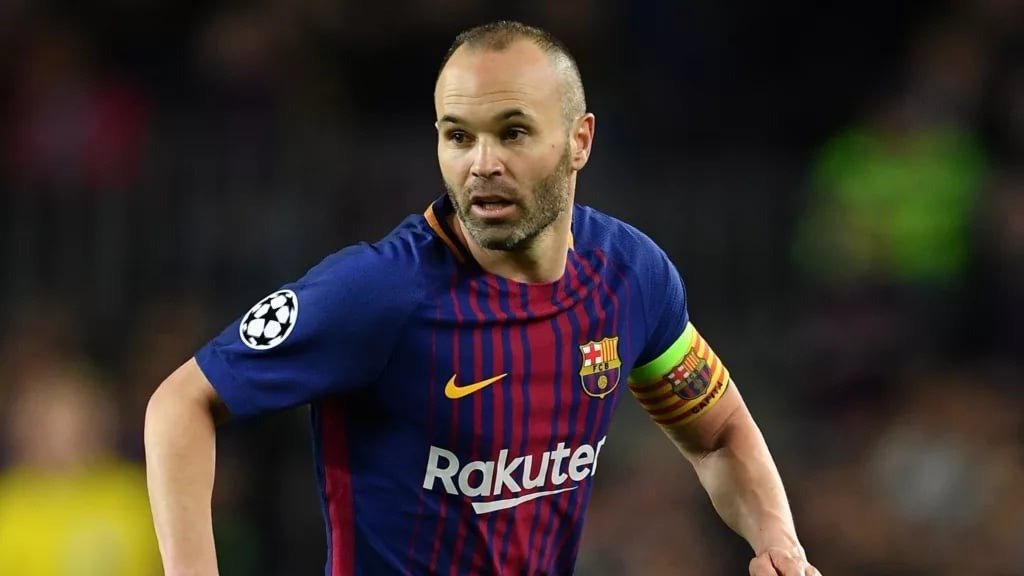
Andrés Iniesta is remembered as one of the most intelligent, graceful, and influential midfielders in football history. His performances in both 2010 and 2012 made him a clear Ballon d’Or contender. In 2010, he reached legendary status by scoring the winning goal in the World Cup final against the Netherlands, delivering Spain their first-ever world title. His calmness under pressure, vision, and flawless technical ability made him the heartbeat of that Spain side.
Two years later, Iniesta again shone on the international stage, guiding Spain to victory at Euro 2012. His dazzling midfield displays earned him the tournament’s Player of the Tournament award, further highlighting his unmatched influence during Spain’s golden era. For both club and country, he was consistently decisive in the biggest games.
However, on both occasions, Lionel Messi’s extraordinary goal-scoring statistics overshadowed Iniesta’s brilliance. Despite Messi’s individual feats, many argued that Iniesta’s influence in winning the two most prestigious international tournaments should have earned him at least one Ballon d’Or. His omission remains one of the most baffling oversights in football history, with fans insisting that Iniesta deserved recognition for being the beating heart of both Barcelona and Spain during their most successful years.
4. Xavi Hernández (Barcelona, 2010–2012)
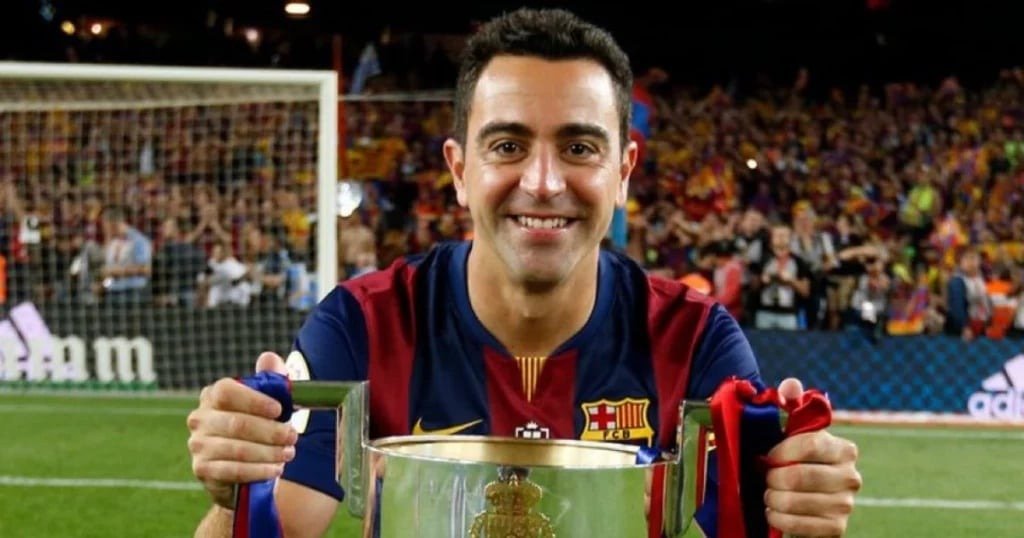
Few players in football history have defined an era quite like Xavi Hernández. The Spanish maestro was the heartbeat of Barcelona’s tiki-taka revolution under Pep Guardiola, orchestrating play with unmatched vision and composure. From 2010 to 2012, Xavi was at his absolute peak, winning Champions Leagues, La Liga titles, and lifting a World Cup and European Championship with Spain. Despite dictating the rhythm of matches and being arguably the most important player in one of football’s greatest dynasties, Xavi never won the Ballon d’Or. Instead, Lionel Messi dominated the awards, leaving Xavi in the shadow of his teammate despite his crucial role.
What makes this omission particularly painful is that Xavi’s brilliance was often overlooked simply because he was not a flashy goal-scorer. His genius lay in controlling tempo, breaking lines with precision passes, and elevating everyone around him. Many pundits argue that no midfielder has ever influenced games as consistently as Xavi during this period. Yet, he never received the ultimate recognition. His absence from the Ballon d’Or winners list remains one of the greatest injustices in football, especially considering he was the brain behind Barcelona and Spain’s golden generation that changed football forever.
3. Virgil van Dijk (Liverpool, 2019)
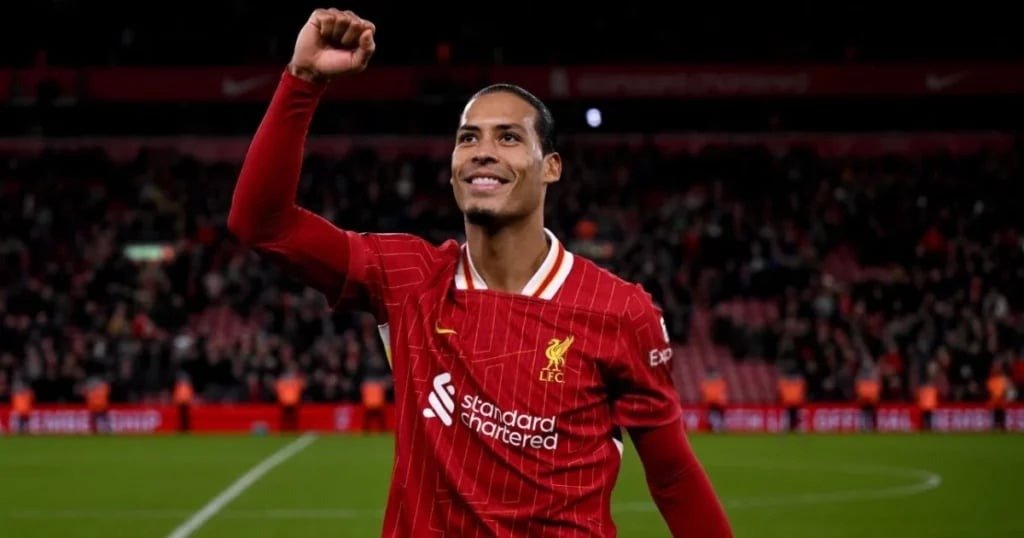
When Virgil van Dijk transformed Liverpool’s defense in 2019, he redefined the role of a modern center-back. Calm, commanding, and nearly impossible to beat, the Dutchman helped Liverpool win the Champions League and came within a point of the Premier League title. That season, van Dijk didn’t get dribbled past once, marshaled one of the best defenses in Europe, and earned recognition as UEFA Men’s Player of the Year. Many expected him to finally break the dominance of attackers in the Ballon d’Or race. Yet, despite his colossal performances, Lionel Messi was awarded the 2019 prize.
The result left fans and pundits divided. While Messi had an outstanding season, van Dijk’s influence on Liverpool and European football felt historic. Rarely does a defender dominate global football conversations, but van Dijk managed to do just that. His leadership, aerial dominance, and distribution from the back made Liverpool nearly unbeatable. Missing out on the Ballon d’Or, despite being so vital to one of football’s greatest defensive eras, felt like a snub that undervalued defenders altogether. Many believe that if van Dijk couldn’t win it in 2019, no modern defender ever will — making his case one of the most debated in Ballon d’Or history.
2. Robert Lewandowski (Bayern Munich, 2020)
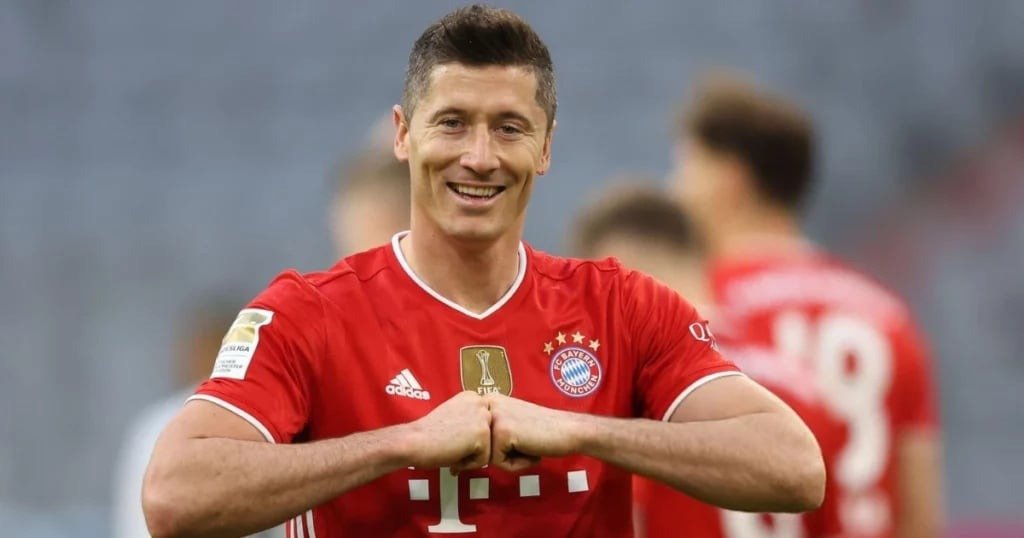
Robert Lewandowski’s 2020 season is remembered as one of the greatest ever produced by a striker. The Polish forward scored goals at a breathtaking rate, finishing as top scorer in the Bundesliga, DFB-Pokal, and Champions League, while guiding Bayern Munich to a historic treble. His movement, finishing, and consistency were simply unstoppable — he seemed destined to finally lift the Ballon d’Or. Unfortunately, due to the COVID-19 pandemic, France Football controversially canceled the award for 2020, denying Lewandowski the recognition he so clearly deserved.
This decision sparked outrage across the football world. Legends, pundits, and fans universally agreed that Lewandowski would have been the undisputed winner. Even Lionel Messi, years later, publicly admitted that Lewandowski should have been awarded the Ballon d’Or for his extraordinary campaign. The snub left a sour taste because it wasn’t about competition with another player — it was about an external circumstance robbing him of a career-defining honor. Though he eventually won FIFA’s The Best Award, it did little to erase the feeling of injustice. For many, Lewandowski’s case is the most blatant Ballon d’Or robbery ever, and his absence from the winners’ list remains one of football’s most heartbreaking injustices.
1. Wesley Sneijder (Inter Milan, 2010)
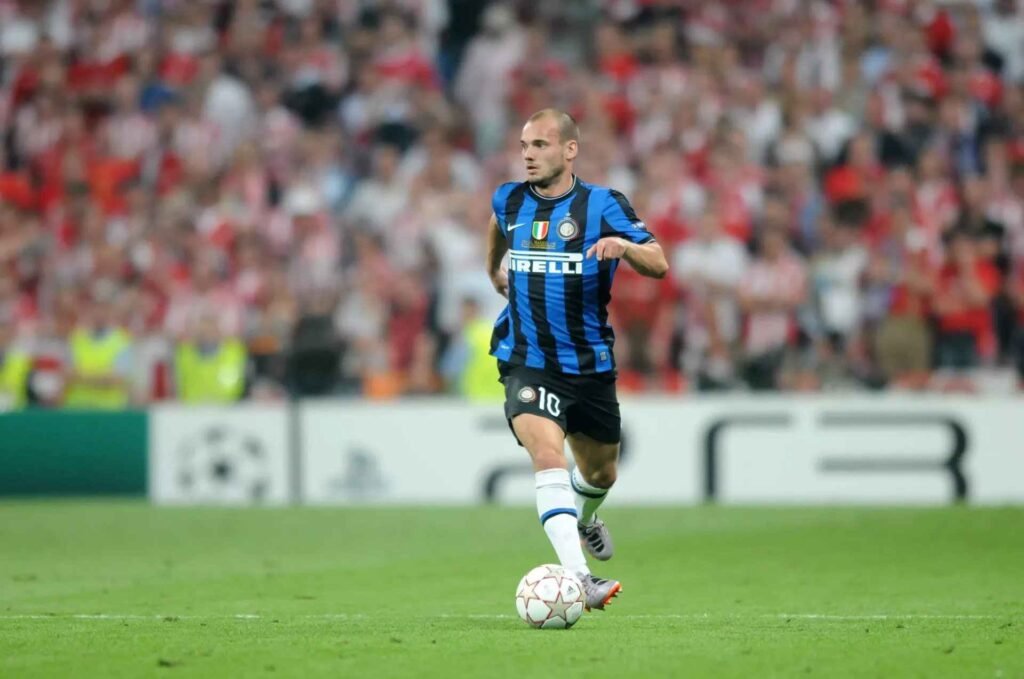
Wesley Sneijder’s 2010 campaign stands out as perhaps the clearest Ballon d’Or injustice of all time. The Dutch playmaker led Inter Milan to an incredible treble, winning Serie A, Coppa Italia, and the Champions League under José Mourinho. Sneijder’s creativity, vision, and leadership were central to Inter’s success, as he orchestrated attacks and delivered in crucial moments on the biggest stage. To add to his case, Sneijder carried the Netherlands to the World Cup final, scoring key goals and earning the Silver Ball as the tournament’s second-best player. By every measure, Sneijder was football’s standout performer of 2010.
Yet, despite this near-perfect year, he didn’t even make the Ballon d’Or top three. Instead, the award went to Lionel Messi, with Andrés Iniesta and Xavi behind him. Many believe Sneijder’s omission was due to narrative and bias, as the Barcelona trio dominated the headlines despite Sneijder’s achievements. This remains a huge stain on the award’s credibility, as few players have ever combined club and international success in one year so completely. For most fans, Sneijder’s 2010 snub is the biggest Ballon d’Or robbery in history — a painful reminder that sometimes, even brilliance isn’t enough for recognition.
FAQ’s:
Why are there so many Ballon d’Or snubs in football history?
The Ballon d’Or is voted on by journalists, captains, and coaches, which means opinions, biases, and narratives often play a huge role. Sometimes, players who achieve extraordinary success are overlooked because they don’t score many goals or lack the same global spotlight as attacking stars. Other times, timing, injuries, or external events—like the cancellation of the 2020 Ballon d’Or—have unfairly denied players the recognition they deserved.
Which Ballon d’Or snub is considered the most controversial of all time?
While opinions vary, many fans and experts point to Wesley Sneijder in 2010 and Robert Lewandowski in 2020 as the biggest injustices. Sneijder won the treble with Inter Milan and reached a World Cup final but didn’t even make the top three. Lewandowski, on the other hand, produced a record-breaking season and was almost universally expected to win, but the award was canceled due to the pandemic.
Has the Ballon d’Or ever recognized defenders or midfielders fairly?
Yes, but rarely. Defenders like Fabio Cannavaro (2006) and midfielders such as Luka Modrić (2018) have won it. However, the award has historically favored forwards, leaving many legendary defenders and midfield maestros overlooked. This imbalance is a key reason why snubs are such a hot topic among football fans.
